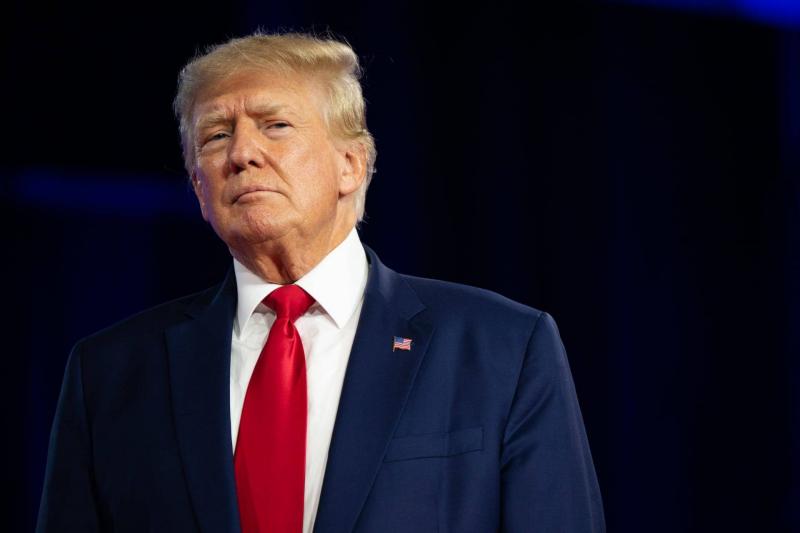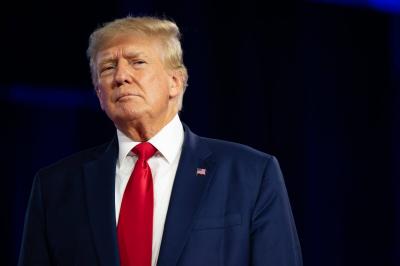Tehran fears a return to the period known as "maximum pressure," which it experienced during the presidency of former U.S. President Donald Trump, should he win the upcoming presidential elections. The former president occasionally expresses intentions to escalate tensions with Iran. For instance, on Saturday, his campaign announced that it had been breached in its internal communications, blaming Tehran for the incident.
The American site "Politico" reported receiving emails from an anonymous account that included documents related to Trump's campaign, including assessments of J.D. Vance, the nominee for Trump's vice president if he is elected. In response, Iran denied the accusations in a statement from its mission to the United Nations on Sunday, claiming that the Iranian government has no intention or motive to interfere in the U.S. presidential elections, as reported by the Iranian news agency "Mehr."
Previously, in July, Iran's mission to the international organization rejected U.S. allegations that Tehran had plotted to assassinate Trump after reports had surfaced regarding such claims.
Tehran's fears regarding Trump's potential return to the White House focus on the future of its economy, as he would not overlook Iran's "circumvention" of U.S. sanctions, unlike the current U.S. administration. Additionally, there are concerns about Trump potentially bringing more countries into peace agreements with Israel and even launching a direct attack on Iran, according to experts who spoke to "Sky News Arabia."
Former Iranian diplomat and opposition figure Adel Al-Asadi reminds that one of Trump's goals during his first term (2017-2021) was to promote peace between Arabs and Israel and that he was able to take several steps in that direction. According to Al-Asadi, "there is no doubt that if Trump is elected, he will seriously continue the peace process, something the Iranian regime does not want, as Tehran knows that opposing the peace plan will provoke a strong reaction from Trump, evidenced by the assassination of Qassem Soleimani."
The U.S. drone strike that killed Qassem Soleimani, the commander of the Quds Force of the Iranian Revolutionary Guard, occurred while he was in Baghdad in 2020. He was responsible for establishing, training, and arming militias allied with Iran in Iraq, Syria, Lebanon, Yemen, and more.
The former diplomat points out that "the Iranian regime knows that Trump would decisively move towards a military attack on Iran, which is exactly what it fears greatly and does not desire at all." Regarding Trump's accusation of Tehran hacking his campaign, Al-Asadi states that "Tehran is unable to influence U.S. elections in any way; it can only engage in minor actions like hacking, but it does not play a significant role in the elections."
**"The Biggest Fears"**
Researcher on Iranian affairs, Wajdan Abdul Rahman, highlights another major concern within Iran over Trump's victory, which he describes as "the biggest fears," specifically the future of its economy. He explains that "the Iranian economy is rentier, primarily reliant on petroleum and petrochemicals, and during Joe Biden's administration, despite the sanctions imposed, Washington has turned a blind eye to Iranian circumvention of these sanctions, like oil smuggling; especially since it does not want to pressure either Tehran or the global economy if oil prices rise."
In the event of Trump’s return, "he will certainly target this vital area of the Iranian economy and will not allow Tehran to continue these evasions." When considering the potential impact on the outcome of the U.S. elections, Abdul Rahman has a different view, suggesting that "there are certainly four countries that will primarily influence these elections: some will work in favor of his loss and the Democratic Party's win, like China and Iran, while others will work for the Republican Party's victory, like Russia and North Korea. Iran will use all platforms and lobbyists within the United States, and through electronic breaches, to prevent Trump's return."
**Iran Between Two Eras**
The relations between Washington and Tehran during Trump's administration are described as "extremely poor"; as Washington withdrew from the nuclear agreement signed between Tehran and the six major powers, including the United States, in 2018, which had alleviated sanctions on Tehran. Trump imposed new sanctions on Iran, including several just days before leaving the White House in January 2021, targeting Iranian companies and foreign companies cooperating with it in shipping. The U.S. also assassinated Qassem Soleimani, one of the most well-known and powerful Iranian leaders, and encouraged the formation of political alliances in the Middle East against Iran. In contrast, the current administration led by President Joe Biden seems to exhibit a degree of flexibility towards Tehran.




